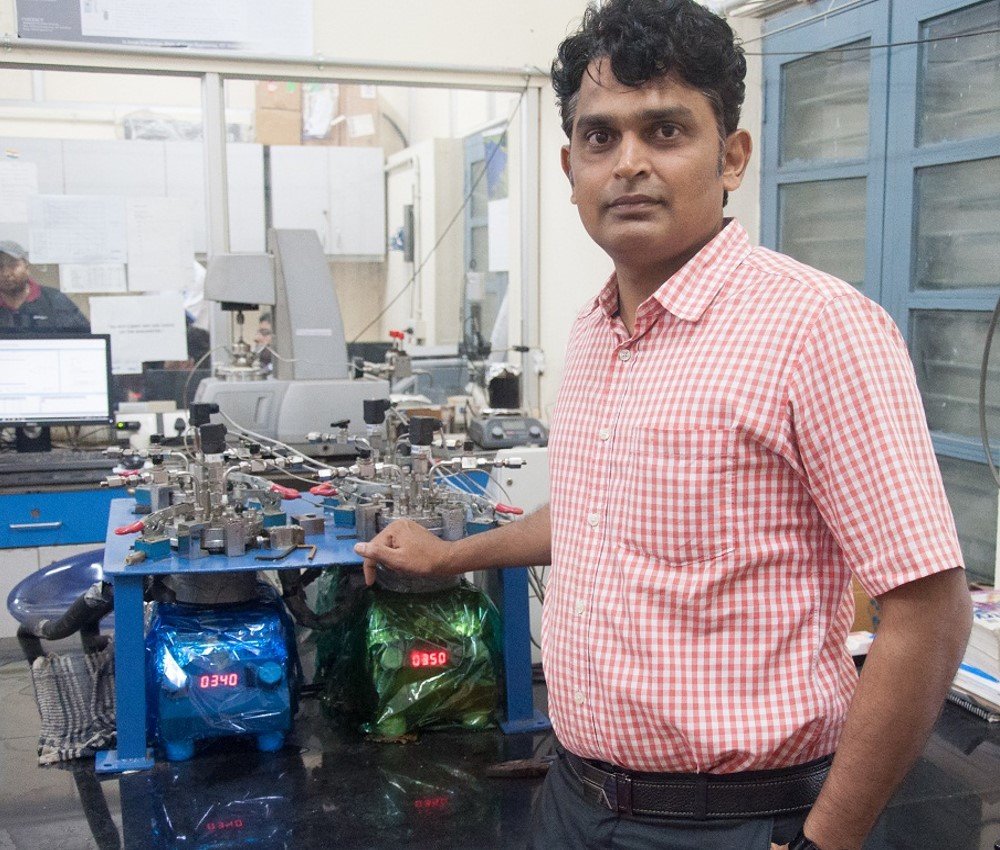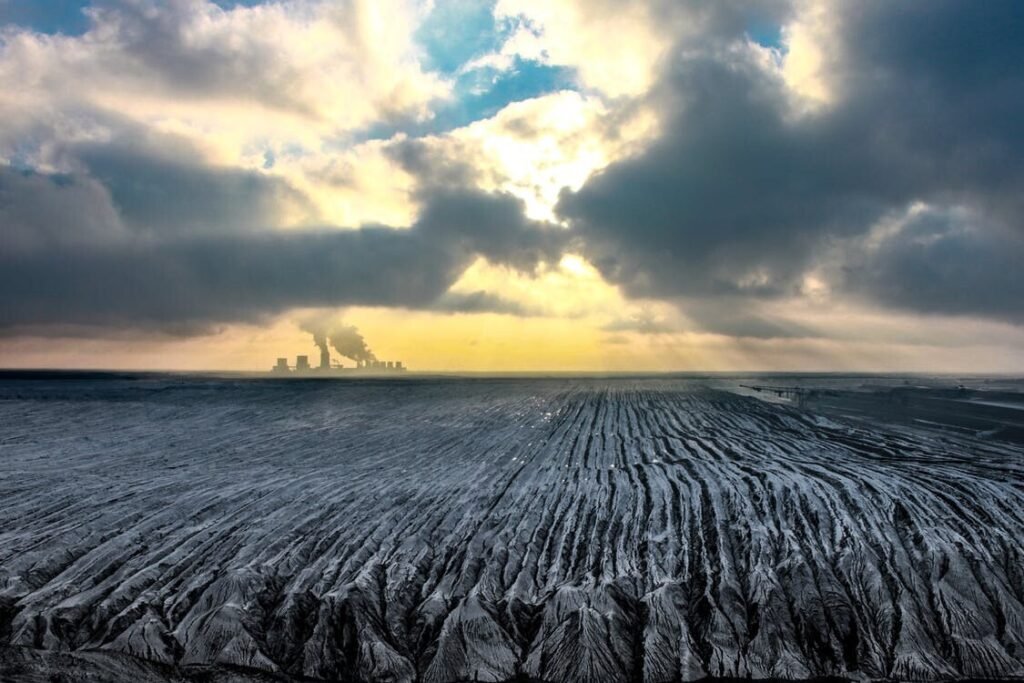After his recent honour of being awarded the Indian National Academy of Engineering (INAE) Fellowship, I met with Dr Jitendra Sangwai, Professor, Department of Chemical Engineering, IIT M. He holds several titles that pins him as either the first or the youngest!
Excerpts from the interview
Energy Consortium (EC): Congratulation on your INAE Fellowship. Could you tell us more about this honor and what it means to you?
Dr Jitendra Sangwai (JS): The fellowship is a prestigious recognition in the field of engineering as the honor is based on significant contributions to specific field. Fellows are chosen by their peers, recognizing the impact and quality of work throughout their professional careers. This achievement typically occurs later in one’s career, often around the age of 55 or older. But I feel very happy and proud on receiving this fellowship at the age of 46. Among the faculty from our department who have received this honor, I am the youngest. While this fellowship does not come with monetary benefits, it serves as a tremendous encouragement and validates the effort and work that I have put in this field.
It is a lifetime honor and what makes it more special is that the annual ceremony where the fellows are recognized will take place this year, at IIT Madras during December.
EC: What are you currently working on?
JS: My work is more into the exploratory domain as I like to investigate novel ideas.
Every activity requires energy. Currently, fossil fuels account for 82% of the worldwide energy mix, contributing significantly to climate change. The demand continues to rise due to increasing populations and lifestyle changes. Just 15 years ago, there were far fewer cars and air-conditioned spaces compared to today. The pressing question is, how to transition from our current energy practices to more sustainable ones.
One crucial strategy is capturing and sequestering CO2. Managing waste in solid and liquid form is relatively straightforward because these substances are concentrated and can be handled in defined spaces. In contrast, gaseous waste (CO2) presents a more complex challenge as the molecules disperse into the atmosphere, making it difficult to capture and separate. This effort too requires significant amount of energy. Our recent research focuses on the direct injection of flue gases into the ocean in solid hydrate reservoirs, without the complexities of capturing and separating the CO2 gas. The focus is on a technique where methane is replaced with CO2 or a mixture of nitrogen (N2) and CO2, which not only stabilizes the hydrate structure but also enables the simultaneous production of methane and capture of CO2. This will abate the need for costly carbon capture processes. It is currently at a lab scale and (currently not) economically viable, but if government policies and future technologies get oriented in this direction, the technique holds promise. Just few weeks ago, we published a paper detailing this method and have also obtained a patent within six months of filing.
In addition, we are also studying methane hydrates. Methane has more warming power than carbon dioxide over the first 20 years after it reaches the atmosphere. It is naturally captured in hydrate form on the seabed. This process has prevented the gas from escaping into the atmosphere, making the planet habitable. Inspired by this, we are investigating how to use a similar method for sequestering CO2 at the seabed. Our research aims to determine the optimal depth and conditions for CO2 hydrates to remain stable.
EC: Can you brief us on your academic journey at IIT Madras?
JS: Although I held various roles in the industry, I felt a strong desire to return to academia. In 2010, IIT Madras launched a new Petroleum Engineering program within the Department of Ocean Engineering. Having spent six years at IIT, I was eager to return to the environment, that I enjoyed so much. I joined the Department of Ocean Engineering at IIT Madras, where I was given the freedom to work on the new Petroleum Engineering program. My background in chemical engineering, combined with my experience in the oil and gas industry, allowed me to transition into this new field seamlessly. Although I applied to join the Chemical Engineering department, Professor M S Ananth, the then Director, encouraged me to be a part of the Ocean Engineering department.
In IIT, the focus is often on interdisciplinary work, and I found this environment enriching. This allowed me to gain knowledge across a broad spectrum that includes geology, geophysics, ocean engineering and petroleum engineering. This expertise has allowed me to be recognized as one of the leading experts in petroleum engineering in India.
My research has earned me several accolades. In 2014, I was honored with the Young Faculty Recognition Award. Later, in 2017, I received the Institute Research and Development Award (IRDA) – Early Career, becoming one of the few recipients under 40 years of age. In 2021, I was awarded the IRDA – Mid Career, highlighting my continued contributions.
Over the past decade, I have supervised about 25 PhD scholars in Ocean Engineering. This number is significant, considering I am a chemical engineer in a department focused on ocean engineering. Five of these scholars now hold faculty positions at IITs, four are at institutes of national importance, and the rest have found successful roles in industry and academia. Being an academic “grandfather,” with my PhD students now mentoring their own students, gives me great satisfaction. It’s fulfilling to see the growth and success of those I’ve mentored. While I had lucrative offers in the industry, the intellectual and personal rewards from academia and research have been far more gratifying. This journey of nurturing academic talent and contributing to the field, is more fulfilling than mere financial rewards.
EC: I noticed on your webpage that you mentioned your school background, which is quite unusual. Could you share more about your journey and how it led you to where you are today?
JS: My father was struggling financially and I have experienced difficulties first hand. But my educational journey began at the Jawahar Navodaya Vidyalaya, Buldana district in Maharashtra. This government-run boarding school was launched in 1987, as a pilot initiative during Rajiv Gandhi’s tenure. It was designed to offer education to talented children from underprivileged backgrounds. I excelled the entrance test to the school and was admitted. This early support allowed me to pursue studies without burdening my family financially.
Then I secured a scholarship for my undergraduate engineering studies, which covered a substantial portion of my expenses. Later, I also received a scholarship to pursue Masters at IIT Kharagpur. Being one of the first engineers in my family to attend IIT was a significant achievement. This was also an inspiration to my juniors at college, demonstrating that an IIT education was within reach. I was hard set on pursuing a PhD in the US after completing my Masters. However, given the financial constraints of my family at the time, I needed to save money for the GRE, TOEFL, and application fees, which amounted to around one and half lakh rupees (Rs 1,50,000). I took a job and saved enough to fund my studies. During this period, my father requested that I contribute the money towards building a new house. Despite my strong desire to study abroad, I couldn’t refuse his request, especially, since we had been living in a cramped 400-square-foot space.
Soon I realized that if I continued working, I might lose interest in further studies. So, I decided to enroll at IIT Kanpur instead. After completing my PhD, I joined the industry, initially working with Schlumberger and then in a startup in Pune. Later I moved to the oil and gas industry and then to the Middle East.
EC: What does the research path ahead look like?
JS: My focus is more on publications and contributing new knowledge. I find this more fulfilling. I do work on various funded research projects. Currently I am working alongside companies like GAIL, ONGC, Kian Energy, amongst others, as well as government departments such as the Department of Science and Technology, Ministry of Earth Sciences,… In these projects, we address specific challenges faced by the partners and provide research-driven solutions. This involves research, publishing our findings and filing patents with an aim to generate new technology and intellectual property. I typically handle two or three projects simultaneously, which allows me to concentrate on my exploratory work.



